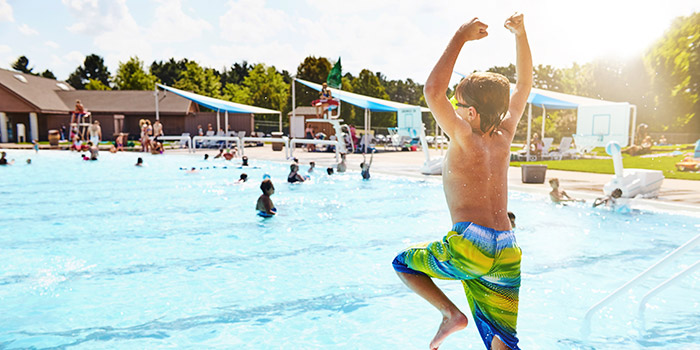Swimming Pool Accident Attorney

If you or someone you know has been injured in a swimming pool accident, you could be entitled to compensation. Few things are worse than when a fun day turns into a disaster, and most people feel lost and confused about what they should do next. Once the initial pain subsides, many of them are left with a mountain of medical bills that can put a lot of stress on their financial stability.
Property owners and pool operators have the responsibility of providing guests with a safe environment, but not all of them fulfill their duty. The laws related to swimming pool accidents can get complex, so you will want to call a swimming pool accident attorney if you have any questions or concerns.
Swimming Pool Accident Causes
Swimming pool owners must post signs that inform guests of possible dangers, but they also need to maintain the facility and have proper safety equipment on hand. In most cases, a lifeguard should be on duty to enforce safety rules and to safeguard you and your family from the unthinkable.
When a pool does not have a sign warning guest that the water is shallow, someone might be tempted to dive and get hurt. Failing to prevent guests from behaving in an unsafe manner can cause people to get injured. Typically these types of cases fall under the general legal category of premises liability. If you believe that your injury resulted from someone else’s negligence, speak with a swimming pool accident attorney as soon as you can.
Swimming Pool Accident Types
The type of accident that you can expect will depend on several factors. Slip-and-fall accidents are the most common and occur when water splashes onto the deck and creates a slippery surface. If the pool equipment has points or sharp edges, guests can experience cuts and bruises when they don’t know about the danger. Drownings are the most tragic type of accident and are often preventable.
Swimming Pool Accident Injuries
If you are at a swimming pool and fall onto the deck, you could experience minor scrapes and bruises, but slip-and-fall accidents can even cause a spinal injury that could impact you for the rest of your life. Infections and diseases can spread in the water if the property owner or pool operator does not maintain the chemical levels of the pool. When guests don’t pay attention to what they are doing and run into each other, nosebleeds are common. If this section did not mention your exact injury, a swimming pool accident attorney would help you determine the strength of your case.
Swimming Pool Accident Liability
The liability in pool accidents will depend on the type of pool in which you were swimming when the accident took place. Public pool operators need to protect their guests from harm. The law also requires them to keep their equipment in good shape while it is in use.
When people swim on private property, the property owner must tell them about any safety issues that are not obvious to the casual observer. If another guest is behaving carelessly and causes harm, the victim can sue the guest for damages related to the injury.
Taking Action
Filing a personal injury claim will not only provide you with the money you need to cover your damages, but it also ensures that pool owners will take steps to keep others safe in the future. Since the memories of witnesses will fade and evidence can get lost, you will want to take action quickly.
When you speak with a swimming pool accident attorney, he will look into your case and tell you what approach makes the most sense. Although dealing with a personal injury can be a challenging and confusing experience, you don’t need to face it alone. For a free consultation, please call 888-292-8888 or contact us online. You can contact the firm 24 hours a day.
- This article should only be used for informational purposes. It does not constitute legal advice, and it does not create an attorney-client relationship with anyone. If you need legal advice, please consult an attorney in your community.

